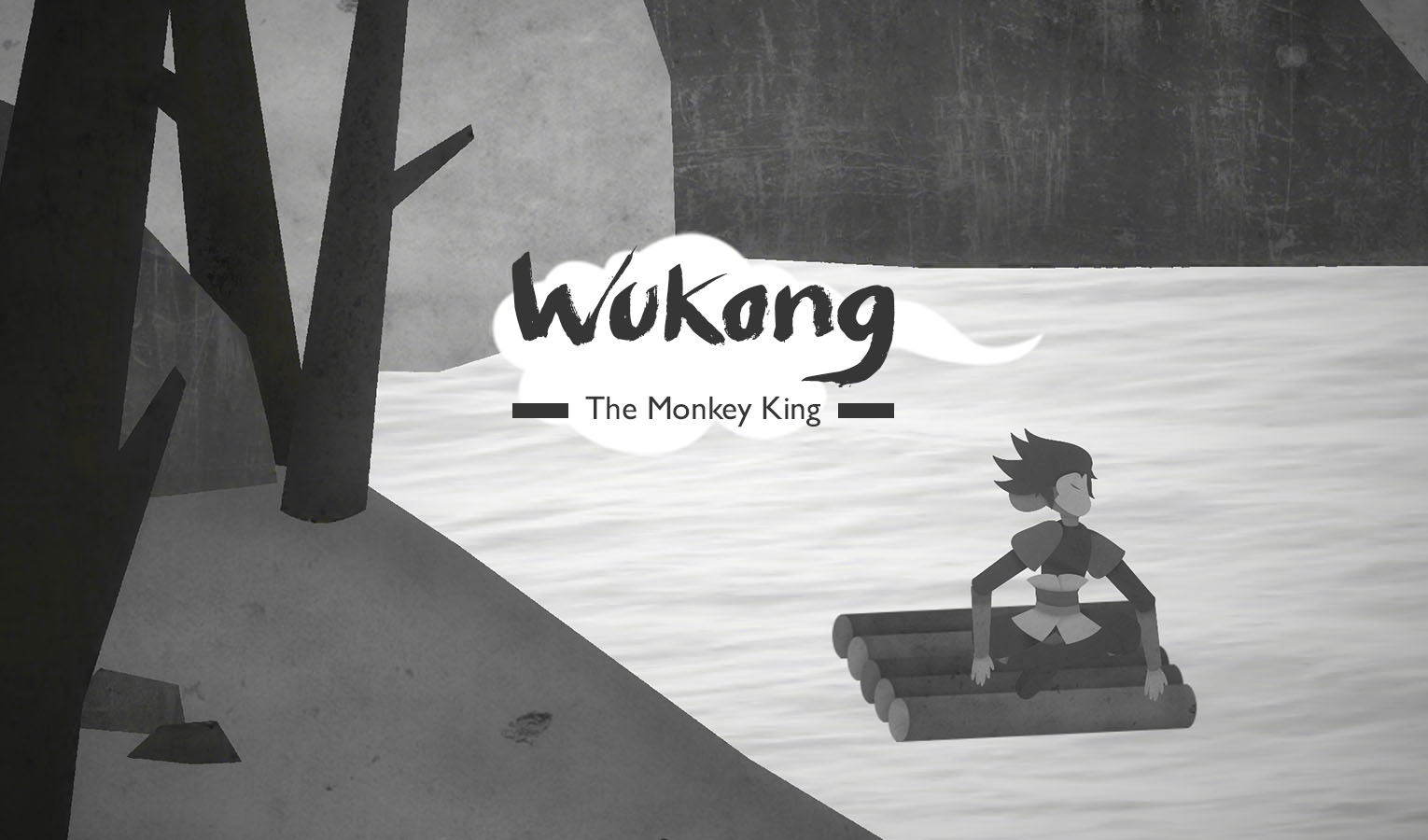Wukong
An interactive story about the Monkey King

Colleen K. Macklin
Nicholas J. Fortugno
Writing and ResearchBarbara B Morris
Christine L Prentice-Popken
“Wukong” is an interactive narrative, with poems and animations in it, which based on the Monkey King story from the classical Chinese novel The Journey to the West. It introduces the Monkey King story to Western audiences from the Buddhist perspective, focusing on self-awareness. There are numerous media adaptations of the Journey to the West; most of them are battle games and adventure stories, because Wukong, the Monkey King, is a perfect character for defeating enemies. Still, these portrayals neglect some of the essential elements of the novel, which come from the Buddhist philosophy behind the story. My thesis, therefore, tries to tell the Monkey King story from a Buddhist perspective. By reading poems and interacting with characters, users who experience “Wukong” will understand the story better.
“Wukong” is an iPad-operated interactive narrative based on the story of the Monkey King from the classical Chinese novel The Journey to the West. It is also a story that offers a Buddhist perspective of self-awareness.
The Journey to the West is a classic Chinese mythological novel. It was written during the Ming Dynasty based on traditional folktales. The story relates the adventures of a priest, Xuanzang, and his three disciples – The Monkey King, Pig and Friar Sand- as they travel west to find the Buddhist Sutra. My story, however, takes place before the Monkey King met Xuanzang, and explains why he is punished by Buddha and waiting to be rescued to start his journey.
As an example of classical Chinese adventure literature, Journey to the West has been translated into different languages including English, presenting a fantasy Eastern world to Western audiences. The novel has been adapted into different media including games, interactive stories and movies. Most of them are battle games and adventure stories. However, these adaptations do not explore the essential elements of the novel, which is the Buddhist philosophy behind the story.
In the beginning of the story, the Monkey King finds a teacher who gives him a new name: Wukong. This name in Chinese has a Buddhist meaning which is “Awakened to Emptiness.” In order to learn to know the real self, one needs to empty oneself of all distracting thoughts and suspend all judgment, letting words, ideas, emotions and thoughts pass by without getting involved in them. Wukong learns spells and magic from his teacher. This symbolizes learning the knowledge and tools needed to control oneself and become of one’s abilities.
The core question of my thesis work is how to present the story in the form of an interactive experience that makes users enjoy the poems of the novel and understand the story by interacting with the characters. How do I embed the Eastern philosophies of Buddhism into a game that Western audiences (aged 20-30) will understand?
“Wukong” focuses on the Buddhist elements of the story, and will take the form of a 2d game-like experience, including text, poems, audio and animations that immerse players into the mythic world of the novel in order to understand the story. By interacting with the characters and reading poems, audiences will gain ideas that they might not otherwise have been exposed to. This aims to encourage people to appreciate and understand a distinct culture.

